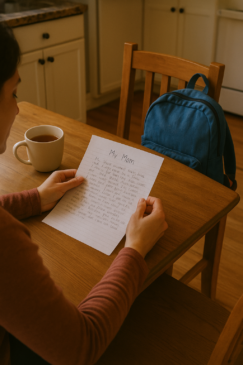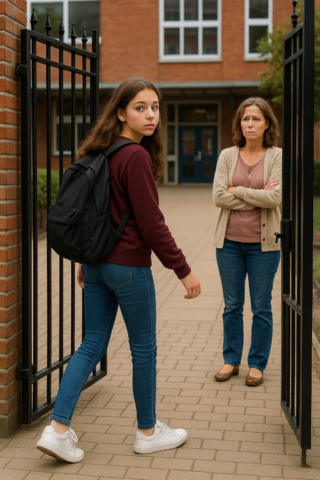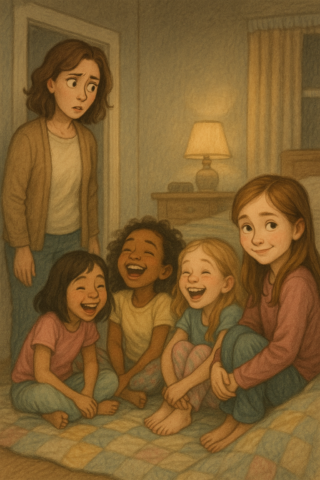It was supposed to be a routine school night. I was sorting through a pile of mail and permission slips when I found the essay—three handwritten pages, clipped together, titled “The Person Who Changed My Life.” My son, Ben, had left it on the kitchen counter with a note: “Can you check this for grammar, Mom?”
I settled in with a cup of tea, expecting the usual—stories about a favorite coach or his grandfather, maybe something about overcoming a hard math class. What I didn’t expect was to read about myself.
The Truth on Paper
Ben’s essay started innocently enough. He described how our family moved three times before he turned twelve, how each new school made him anxious. He wrote about the boxes stacked in every hallway, the awkward lunch tables, the loneliness that crept in at night.
Then, he wrote about me—not the way I thought he would, not the way I’d seen myself in our story. He described the nights I stayed up late packing, the times I snapped because I was stressed, the moments when I seemed distracted by work or exhausted by life.
But then he surprised me. Ben wrote, “Even when she was tired, my mom always showed up. She made every new place feel like home, even if it was just pizza on the floor of an empty living room. She let me be sad, but she also made me brave. I think my mom is still learning, but so am I.”
I read those lines over and over, tears in my eyes.

Seeing Myself Through His Eyes
I’d spent years worrying about all the ways I might be letting Ben down—the forgotten lunchboxes, the missed soccer games, the times I’d lost my patience after a long day. But reading his essay, I realized he saw so much more than my mistakes. He saw the effort, the little rituals, the love that threaded through even the hardest seasons.
Ben didn’t paint me as perfect. He wrote about my flaws, my tired days, my apologies. But he also wrote about my laughter, the way I cheered for him at every game—even when he barely played—and the way I always promised, “We’ll get through this together.”
The Conversation That Followed
When Ben came home, I gave him a hug so tight he rolled his eyes but let me anyway. “You read it, huh?” he asked, cheeks turning pink.
“Yeah,” I whispered. “Thank you for telling the truth. For seeing me, even on the days I don’t see myself very clearly.”
He shrugged. “I figured you should know.”
We talked for a while—about moving, about being scared, about how sometimes parents feel lost, too. I promised to keep learning, and Ben promised to keep telling me how he feels, even if it’s messy.
What I Learned
Our kids notice more than we think. They remember the small things, the bad days, the apologies—and the ways we try, again and again. Perfection isn’t what they need. They need us, honest and present, willing to grow alongside them.
Final Thought
If you ever get the chance to see yourself through your child’s eyes, take it. Listen closely. The truth might be raw, but it’s also filled with the grace and hope we all need to keep going—together.


